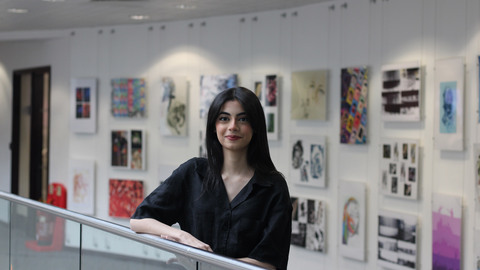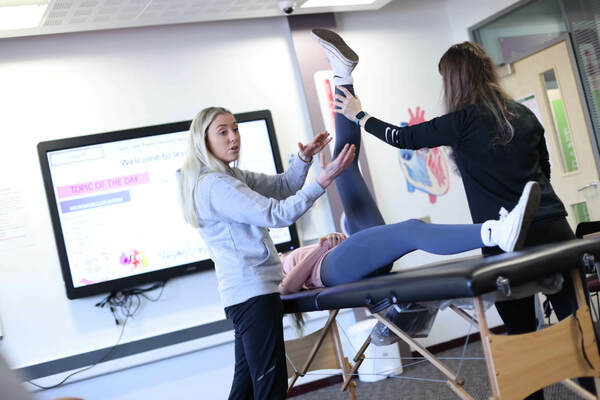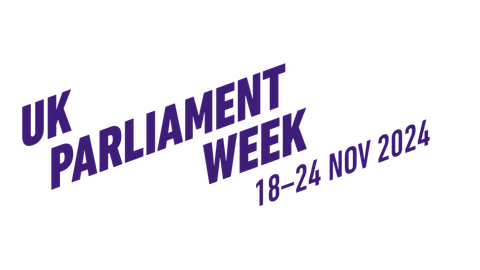Course overview
Applied Science is an in-depth practical science focused course that also includes a broad range of related fields from engineering, architecture, business, pharmacy, zoology to biomedical science. The course is less weighted towards examinations, so if you are interested in a career involving practical work in a science-based organisation and prefer portfolio-based assessment of your scientific investigations, then this course will appeal to you.
Entry requirements
Students will be expected to have five GCSEs at grade 9-5, including a minimum of grade 5 in GCSE English Language or Mathematics and two grade 5s in GCSE single Science subjects or Combined Science.
Topics you will study
Topics you will study include:
Year 1:
• Principles and Applications of Science I – Biology, Chemistry and Physics
• Practical Procedures and Techniques
• Science Investigation Skills
• Chemistry in Industry
• Human Regulation and Reproduction
• Genetics
• Medical Physics
Year 2:
• Principles and Applications of Science II – Biology, Chemistry and Physics
• Investigative Project
• Contemporary Issues in Science
• Biological Molecules
• Organic Chemistry
• Electrical Circuits
Key features
The course is equivalent to three A Levels and is assessed over two years by a combination of laboratory practical, written assignment and controlled and externally marked assessments. The grades you can be awarded are Pass, Merit or Distinction for each unit.
In the first year, you will study the principles and applications of science before going on to see contemporary issues in science. You will also learn to use basic chemical practical techniques as well as studying biological molecules and metabolic pathways. You will then go on to study applications of organic chemistry. You will also study medical physics.
In the second year, you will have the opportunity to select your own investigative project where you research and report on a scientific topic that interests you, or links directly to your desired profession.
Throughout the course, you will have the opportunity to develop a myriad of transferable skills, independent study skills, practical skills, manipulating data and organisation skills that will aid in the transition to employment or higher education.
Assessment
There are 13 units of study, seven mandatory and six optional. Four of the mandatory units consist of externally assessed examinations. The remaining units are assessed through assignment work.
Exam Board: Pearson RQF
Enrichment and Work Experience
As part of the course, all students will be expected to complete a minimum of one-week work experience. In the second year, students have the opportunity to undertake an industry placement, carried out over two days every week. This will develop your employability skills and give you valuable experience for future applications. There will also be relevant visits and guest speakers from industry, as well as demonstrations to enhance learning on the course.
Why choose B6?
We have up-to-date facilities in the science laboratories with state-of-the-art equipment for practical investigations. Lessons are varied and interesting and there is a good combination of theory, practical and assignment work. Scenarios set the scene for assignment work and are vocational in context.
You also have the option to study an additional subject of Core Mathematics.
Students are also invited to attend Med-Soc, (formerly Operating Theatre Live) partially funded by The Sixth Form and a bespoke STEM event designed to provide independent advice and guidance on a wide range of careers and courses in the scientific and medical fields.
Future career opportunities
Our students go to university to study optometry, pharmacy, pharmacology, pharmaceutical chemistry, radiography, audiology, podiatry, dental technology , nursing, biomedical science, forensic science, forensic chemistry, operating theatre studies, nutritional science, neuroscience, petroleum engineering, engineering and other courses.
Additional information
Students will bring basic stationery and a calculator to lessons, be punctual, engaged and ready to learn. We also expect you to commit to at least five hours per week outside of lesson to be spent on independent learning. This will include: homework, reading, research, and revision for this subject.
Bushraa Maroof
Studying:
Triple Vocational A Level Applied Science
Previous school:
Sharples School
Related Courses
News
B6 Alumni Member Secures Apprenticeship With Vertu Jaguar Land Rover
Emily Dover, B6 Careers & Employability Advisor and Shamail Aurang, B6 Alumni Member Shamail
First-year B6 Student Takes Part in the Great Debate
B6 student, Isabelle Flannery Last term Isabelle Flannery, a former St Joseph's RC High School
B6 Students Mark UK Parliament Week by Debating Assisted Dying
B6 Students Mark UK Parliament Week by Debating Assisted Dying B6 students celebrated UK









